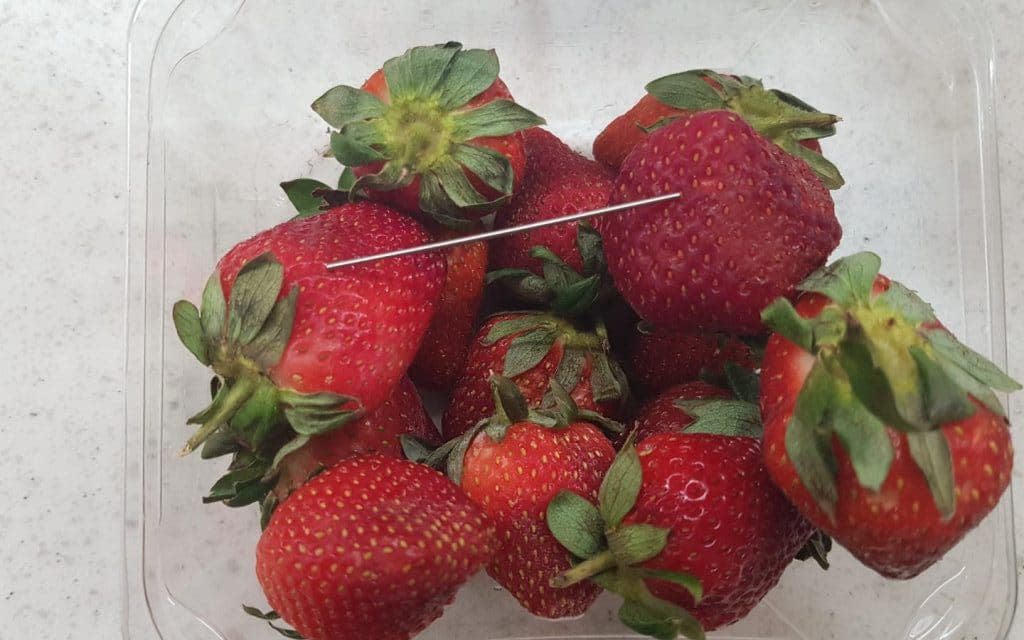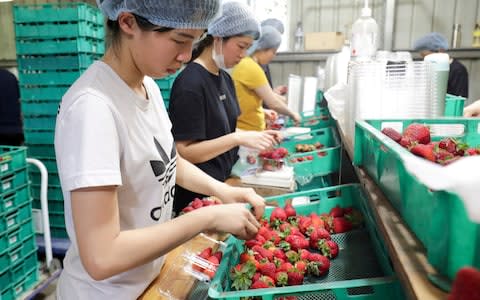Australian woman accused of planting needles in strawberries 'motivated by spite'

An Australian woman accused of inserting sewing needles into strawberries – sparking a nationwide fruit contamination scare – allegedly acted out of “spite or revenge”, a court heard.
My Ut Trinh, 50, was arrested in Brisbane on Sunday, two months after the discovery of needles prompted copycat cases and led to supermarkets removing strawberries – and needles – from shelves. Farmers were forced to dump tonnes of strawberries and prices plunged, as foreign and local demand plummeted and health authorities issued warnings.
The Brisbane magistrates court heard that Ms Trinh worked as a supervisor at the Berry Licious farm, but did not pick strawberries work or in the packing sheds.
"The case that is put is that it is motivated by some spite or revenge," Magistrate Christine Roney said.
"She has embarked on a course over several months of putting a metal object into fruit."

Police told the court that Ms Trinh’s DNA was found in a punnet of strawberries in the state of Victoria.
Superintendent Jon Wacker, from Queensland Police, said there were 186 reports of sewing needles found in strawberries, including 77 in Queensland. Fifteen were found to be hoaxes. Sixty-eight strawberry brands were affected, including 49 in Queensland.
Following the initial discovery of contaminated strawberry punnets, which were believed to have originated in Queensland, needles were also found in bananas, apples and mangoes. Some of the cases involved hoaxes, including people inserting needles after buying the fruit and then posting images on social media.
Prosecutors opposed bail for Ms Trinh, saying there was a risk of “witnesses being interfered with" and she faced retribution if released.
"There may be retribution from people seeking to locate her," Cheryl Tesch, the prosecutor, told the court.
Ms Trinh’s lawyers said there was no evidence that she had been threatened but withdrew an application for bail.
During the contamination scare, police in some states offered rewards for information about fruit tampering. Scott Morrison, the prime minister, introduced new tampering laws that included increasing maximum jail sentences from 10 to 15 years.
Scott Morrison, the prime minister, vowed to "throw the book" at anyone responsible, saying: "It's not funny, putting the livelihoods of hard-working Australians at risk, and you are scaring children. And you are a coward and a grub."
Di West, manager of strawberry growers Suncoast Harvest, said they were forced to abandon enough straweberries to fill more than one million punnets.
"We had to finish our season very early, by nearly six weeks, in our peak season because of the crisis in September," she told ABC News.
"There was so much copycatting and pranking going on that other farms, including ours, was being dragged into it."
Ms Trinh was charged with seven counts of contamination of goods with intent to cause economic loss. She faces up to ten years in jail.

 Yahoo News
Yahoo News 
